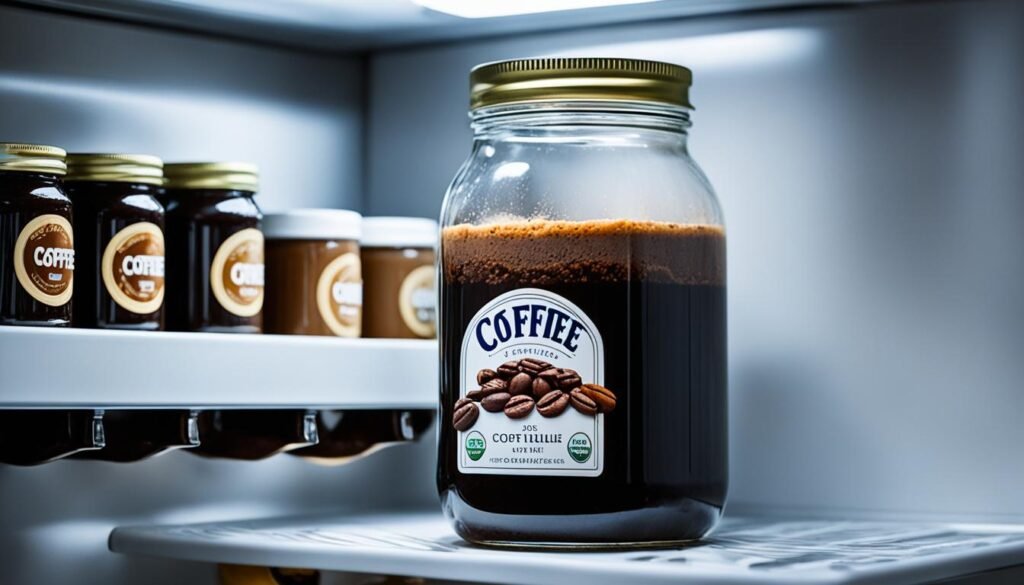Decaf coffee affects bowel movements by stimulating the gastrocolic response, increasing colon activity, and often leading to the urge to defecate, especially in the morning. Its impact is similar to regular coffee, potentially causing bloating or diarrhea depending on individual tolerance levels and digestive sensitivity.
Factors like dairy and sweeteners in coffee can also affect stomach health by boosting acid production. It is essential to consume decaf coffee mindfully, especially for individuals with conditions like acid reflux, to manage digestive responses effectively and promote overall well-being.
Understanding these effects can help individuals make informed choices about their coffee consumption habits.
Why Decaf Coffee Affects Bowel Movements

Decaf coffee can impact bowel movements because it triggers the gastrocolic response, a natural reflex involving the stomach and colon that increases motility after eating or drinking.
While there isn't definitive scientific evidence that decaf coffee directly causes bowel movements, both caffeinated and decaf coffee can boost colon activity.
The first cup of coffee in the morning typically has the most significant effect, often leading to the urge to defecate.
Understanding this process helps individuals realize how their morning coffee ritual can influence their digestive system, creating a sense of camaraderie among coffee drinkers who share similar experiences.
Variability in Decaf Coffee Effects
Individual differences play a significant role in how decaf coffee affects bowel movements. The variability in individual responses can be attributed to several factors:
- Digestive Sensitivity: Some individuals have more sensitive digestive systems, making them more prone to experiencing cramping or bloating after consuming decaf coffee.
- Metabolic Rate: Variations in metabolic rates can influence how quickly the body processes decaf coffee, impacting the timing of bowel movements.
- Personal Tolerance: People exhibit varying levels of tolerance to the components of coffee, leading to diverse digestive reactions.
These factors underscore the diverse experiences among decaf coffee consumers. Recognizing and respecting these unique responses can help individuals appreciate their own and others' digestive differences.
Laxative Effects of Decaf Coffee

Many people may not realize that decaffeinated coffee can also have a laxative effect on the body. This occurs due to a similar reaction in the gut as with regular coffee, known as the gastrocolic response.
This response can increase activity in the colon, leading to symptoms like cramping, bloating, or diarrhea in some individuals. It's worth noting that not everyone will experience these effects from decaf coffee.
Factors that contribute to these effects include individual tolerance levels, the timing of consumption (often seen after the first cup in the morning), and the similarities in impact between decaf and regular coffee.
Understanding these factors can help individuals make informed choices about their decaf coffee intake and be prepared for any potential digestive reactions.
Stomach Health and Decaf Coffee
Decaf coffee can impact stomach health depending on how it's prepared and what ingredients are added. Factors like dairy additions, sweeteners, and brewing methods can affect how decaf coffee interacts with the digestive system.
For instance, milk and cream can increase stomach acid, while sugar and artificial sweeteners may irritate the stomach lining. Moreover, different brewing techniques can alter the acidity level of decaf coffee.
Being mindful of these factors is crucial for individuals concerned about their stomach health when consuming decaf coffee. Making informed choices about what goes into your cup can contribute to a sense of well-being and health-conscious decision-making.
Considerations for Drinking Decaf Coffee

Considering the consumption of decaf coffee requires a thoughtful assessment of personal tolerance and any existing health conditions. If you have stomach issues like acid reflux or digestive sensitivity, it may be best to steer clear of decaf coffee to avoid worsening symptoms.
If you experience persistent digestive problems after drinking coffee, it's advisable to consult a healthcare professional to address any underlying issues. The impact of decaf coffee on bowel movements can vary greatly from person to person, so it's essential to pay attention to your body's response.
Making adjustments like reducing intake or exploring alternatives such as herbal tea might be necessary. Ultimately, your individual tolerance and health circumstances should be the deciding factors when it comes to consuming decaf coffee to maintain digestive well-being.
Conclusion
The connection between decaf coffee and bowel movements is of significant interest, although scientific evidence on their direct relationship is still inconclusive.
Decaf coffee's potential to impact colon activity through brain signals and hormonal changes should not be overlooked.
Individual responses vary, influenced by preparation methods and additional ingredients, highlighting the importance of mindful consumption.
For those facing persistent digestive issues, reevaluating decaf coffee intake may be beneficial to alleviate discomfort and promote digestive wellness.












